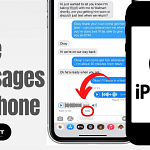When trying to keep your system healthy and virus-free, it helps to, at the very least, have an antivirus scanner installed.
The computer system is one of the greatest pieces of technology today, used virtually every day, for a great many number of us. However, these systems are not infallible, as they are prone to viruses that could corrupt your files or compromise your data. Such compromises could result in identity theft, credit card fraud and more. If you’d like to know the 8 best ways to protect your system from viruses, then I suggest you continue reading:
1. Install Anti-Virus Scanner
An antivirus scanner is designed to scan your system for viruses that may have infiltrated your system. For this reason, it’s imperative you have one on your system. You’ll want to go with a quality scanner, bearing in mind its reputation, along with its feature set.
You also want to consider the price of the software package. One thing to keep in mind is that the best antivirus scanner isn’t necessarily the most expensive one. There are many free solutions out there, many of which may seem tempting, but in the end could prove to be insufficient, when it comes to overall protection.
2. Prioritize Secure Sites
When on the internet, you’ll find that a large number of sites URLs begin with an ‘http’ however, a secure version of any URL would start like this ‘https’. It’s highly recommended that when surfing the internet, especially when doing something at least mildly important like accessing a social network, shopping online or internet banking, it’s very important that you only go on sites that have a URL that begins with ‘https’. This way you can ensure any data you transfer to the site will remain secure.
3. Backup Your Computer
There are times when a virus or malicious file has caused so much damage to our system that the only way to combat it is to replace large portions of the corrupted data. In more extreme causes, if there’s too much file corruption, you may need to reformat the entire drive.
This is where backups come into the equation. As without them, there would be no way to recover any lost data. This is especially important as data corruption can be caused by any number of things, not just malicious files, which is why it’s important you always have backups of your data. However, if your backups are compromised, meaning, they too are infected, then you’d only end up repeating the same issue you experienced prior to the reformat.
When it comes to backing up your data, there are three ways you can go about doing it. You can use online storage, an external hard drive, orGoogle Drive, which is a site that you can use, that offers free cloud storage.
4. Regularly Scan Your System
Malware, spyware and viruses are forever changing. Because of this, it’s not unexpected that, eventually, at least one of them will get through your protection and infect your system. For this reason, you’ll want to carry out daily scanners using whatever internet security solution you have to locate, quarantine or remove malicious files from your system or network; preventing them from doing any additional damage.
5. Research Computer Security Basics
When it comes to computer security, the buck starts with you. If you work at a company that doesn’t have any sort of security awareness program, then it’s probably best they had one. When an employee is given the basics of computer security, it helps protect the company’s network from contracting, at least, the most basic of malware. Even for the employee, you’d want to take the time to research about computer security for yourself. Knowing what’s what will ensure you make more informed decisions while on your system.
6. Be Mindful Of What You Click On
Whether it’s an email from someone you’re familiar with or a post from one of your friends on your social media account, you should always be mindful of any links contained in these messages. If you receive a message that comes across as generic, with terms such as ‘look what I found’ or ‘you’ll like this’ accompanied with an attachment or a link to a website, then there’s a strong chance it’s malicious. Never, as a general rule, open attachments from unsolicited emails.
Scammers are aware that most people are more likely to click on links from emails sent from friends, so they’ll oftentimes target user’s accounts and use them to send out malicious emails to their contacts, making it significantly more difficult for the unsuspecting victim to identify.
7. Install Anti-Spyware and Anti-Malware Tools
Spyware and malware are capable of doing a great deal of damage to your network – oftentimes on par with anything a virus might do. When searching for an antispyware or antimalware tool, its best practice to look for the same qualities that you would, when identifying the right antivirus program. You’ll want one that can automatically run full scans of your system, can update itself periodically with the latest malware definitions, as well as remove or quarantine any malware or spyware it finds.
Most end users prefer to go with an antivirus solution that comes with malware and spyware scanning and removal capabilities. It’s important to bear in mind that no one security tool is capable of finding everything. That’s why it’s important your security solution is multi-layered. Each security tool offers its own unique approach to identifying and tackling the various security threats out there.
8. Only Download Apps from Trusted Sources
Are you on the hunt for a new app for your system? Well, the first thing you’ll need to do is identify the program, then find out who developed it. From there, you should either go to the developer’s website to download the program/tool or go to a trusted download source like download.com to acquire it. Keep in mind that a lot of cybercriminals like to hide malicious files inside hacked versions of apps, which is why you want to avoid these other sources. Stick with the legitimate methods and you’ll be fine.
–AUTHOR INFO—
Uchenna Ani-Okoye is a former IT Manager who now runs his own computer support website https://www.compuchenna.co.uk/.








